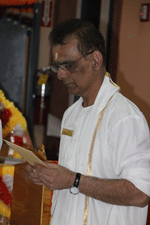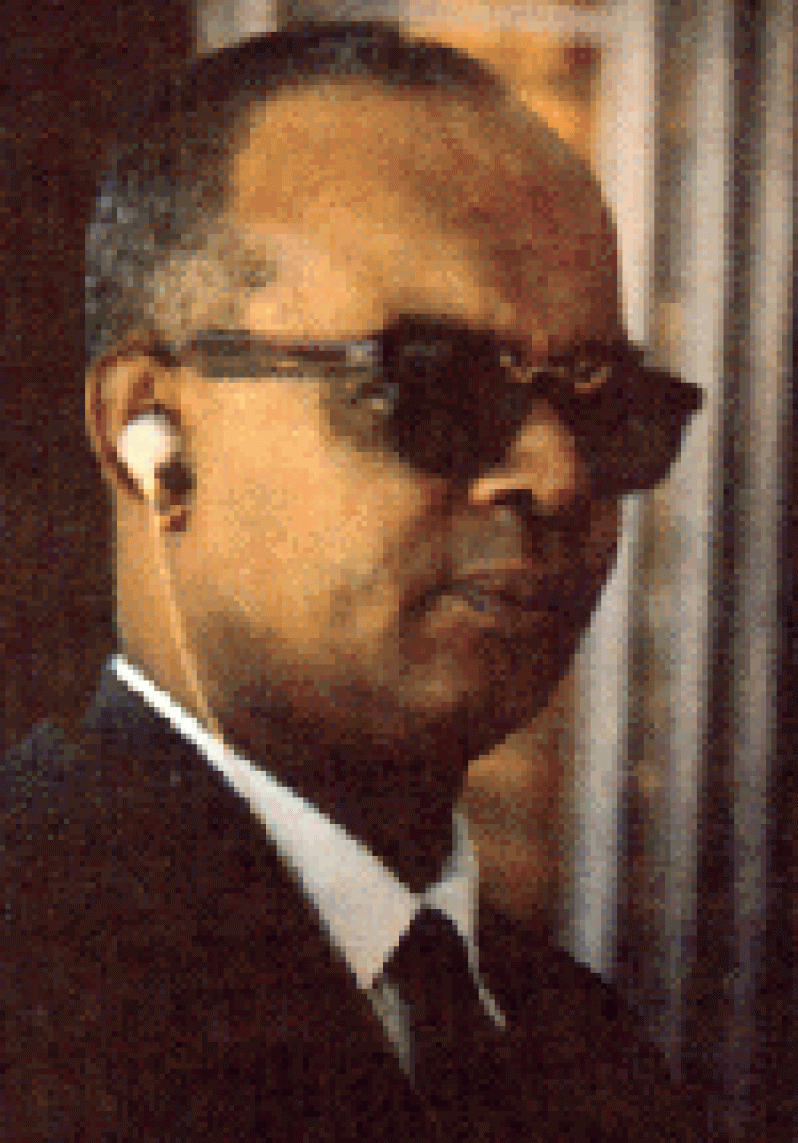AN INTERESTING debate currently developing in Trinidad and Tobago over a likely policy shift by the People’s National Movement (PNM), the country’s oldest party, to embrace a hitherto rejected idea of coalescing with other parties to ensure future electoral victories, would likely hold much interest for some other CARICOM states; perhaps none more so than Guyana.
 What would have been considered political heresy under the PNM’s founder-leader and ‘political father’ of that multi-ethnic, multi-cultural nation, Dr Eric Williams, and right up to its last political leader and Prime Minister, Patrick Manning, is now being voiced with seemingly cautious determination by the party’s current first-time leader, Dr Keith Rowley, ahead of a coming annual convention.
What would have been considered political heresy under the PNM’s founder-leader and ‘political father’ of that multi-ethnic, multi-cultural nation, Dr Eric Williams, and right up to its last political leader and Prime Minister, Patrick Manning, is now being voiced with seemingly cautious determination by the party’s current first-time leader, Dr Keith Rowley, ahead of a coming annual convention.
Accustomed to winning and losing on its own from its pre-independence history of multi-party national elections, very much in the fashion of Guyana’s People’s Progressive Party (PPP), the PNM, like the PPP, has always opposed ditching the institutionalised first-past-the-post electoral system in preference for Proportional Representation (PR), which more readily facilitates coalition governments.
I cannot recall the idea of coalition government politics, either based on the PR or the so-called ‘winner-takes-all’ (first-past-the-post) model, ever being embraced in post-independence Barbados. But the idea of today’s PNM moving away from “winning-or-losing- alone” politics to the probability of teaming up with one or more parties to ensure a return to state power — to which it has been accustomed — is still very much at the talking and speculative stage.
The talk of the PNM’s likely shift is occurring at a time when Guyanese are experiencing how a first-time one-seat majority in Parliament can be manipulated by an opposition coalition against a minority government of the PPP —accustomed to winning all freely contested national elections; that is, until the last November 28 poll, when it fell short of a majority by one seat in the 65-member Parliament, and by losing a mere six votes in one polling division as reported.
In T&T, those parties and elements currently engaged in the game of threatening to cut ties with the Kamla Persad Bissessar-led coalition government and become part of the parliamentary opposition (currently comprising a PNM dozen) would be aware that, unless there is a serious fracture in the dominant United National Congress (UNC), that party can comfortably continue alone to govern until either a snap or scheduled national election.
The PR system
Apart from the UNC, the dominant only ‘partner’ in the coalition government, only the Congress of Peoples (COP) has six seats, which is quite a change from 2007 when, under then founder-leader Winston Dookeran, it had succeeded in securing more than 22 percent of valid votes, but had won NO seats.
Under the PR electoral system, that could not have occurred. It was the time of plenty votes but no seats for some opposition parties. It had earlier been the bitter experience also for Karl Hudson-Phillips at the 1980 parliamentary election, at which his Organization for National Reconstruction (ONR) had managed to win some 90,000 (ninety thousand) votes but “not a damn seat” (as had been the declared angry wish of then Prime Minister and PNM leader, George Chambers.
Again, that could not have occurred under the PR electoral system. Nor, for that matter, as happened in 2000, when the UNC (led by then Prime Minister Basdeo Panday) secured approximately 50 percent of the official votes (49.9 to be precise) to the PNM’s 46.5 per cent) but with both parties in a tie for parliamentary seats.
The political drama to unfold from those results was a sharp reminder of what had occurred in colonial British Guiana, when the Governor took a certain course of action, in December 1964, following the first-ever national election under the PR electoral system.
In Port-of-Spain in 2001, a then President ANR Robinson, former leader of the National Alliance for Reconstruction (NAR) and ex-coalition partner of Panday, had opted to deviate from established British-style constitutional norms by ignoring then sitting Prime Minister Panday to form a new government, and choosing instead to call upon then PNM leader Manning to do so.
Much earlier, back in December 1964, although under the first-time PR electoral system Dr Cheddi Jagan’s incumbent PPP had won the largest bloc of votes — 46 percent to Forbes Burnham’s People’s National Congress’s 41 percent and the minority United Force’s 12 percent — the then British Governor, acting in accordance with his government in London, chose to ignore established conventions by refusing to first request Dr Jagan to form a new government.
A defiant Jagan forced the British government to dismiss him from office by way of a constitutional amendment.
While, therefore, there are undoubtedly pluses and minuses in both the PR and First-Past-the-Post electoral systems, as established by examples in Suriname and Guyana, there is a new and sensational manifestation in parliamentary governance in Guyana. It relates to the Guyanese frustration in governance with a less than a year-old first-time opposition coalition with a one-seat majority in a 65-member National Assembly.
The opposition coalition of the dominant A Partnership for National Unity (APNU) and Alliance For Change (AFC) is currently seeking to make political virtue of disrupting parliamentary proceedings by ignoring established conventions.
These include rulings by their own chosen Speaker (Raphael Trotman, lawyer and former leader of the minority AFC). Eventually, the Speaker was forced last week to openly decry their disruptive behaviour and adjourn Parliament until November 22, leaving Guyanese to wonder about the next development.
Meanwhile, in T&T, those discussing the likelihood of a PNM outreach for potential electoral allies may need to also give consideration to the pluses and minuses of coalitions for governance and/or in opposition against an elected government.



.jpg)








